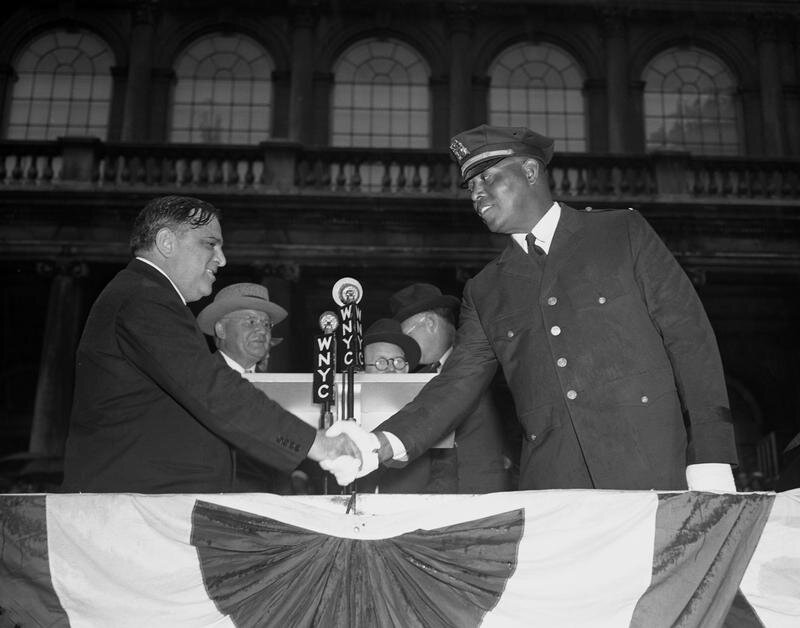While several African-Americans have achieved many things in law enforcement, there is one man who stood up to break the barriers and pave the way for them.
Samuel J. Battle was the first African-American officer in the NYPD. He started in 1911 and rose through the ranks from Sergeant to Lieutenant, and then ended being the Parole Commissioner despite widespread racism and several death threats.
Who was Samuel J. Battle?
Samuel Jesse Battle was born on January 16, 1883, in New Bern, North Carolina. Not much is said about his life before joining the force, but what is certain is that Battle’s brother-in-law, Moses P. Cobb helped him in the force.
Cobb started working for the Brooklyn Police Force in the early 1890s. And on June 29, 1911, Battle joined the first and became the first black police officer of the NYPD. Cobb mentored Battle, who was then known as Big Sam, weighing 280 pounds and standing at 6 feet and 3 inches. On the day Battle joined the force, the Police Commissioner at the time gave him sound advice.
You will have some difficulties, but I know you will overcome them.
Rhinelander Waldo, Police Commissioner NYPD
Battle earned the respect of his fellow police officers after saving another officer’s life in the 1920s. He was eventually voted into the Sergeant’s Academy. He was the very first black lieutenant of the NYPD. During the Harlem Riots of 1935, he distributed flyers of himself with a young boy smiling. The boy in the flyer was allegedly murdered in the basement of the Kress Department store.
Battle eventually pushed through the ranks of the NYPD despite the discrimination and politics. He pushed for quality in all civil services. He also mentored the first black firefighter in the New York Fire Department (NYFD), Wesley Williams. (Source: Police 1 by Lexipol)
Samuel J. Battle’s Career in the NYPD
Battle’s career in the NYPD was never easy. He faced death threats and discrimination even before taking the civil service exam. On his first day at the 28th precinct, his colleagues greeted him with silence and disdain. He was not even given space in a dormitory, just like everyone else. He had a small cot in the precinct’s flag storage space.
Sometimes, lying on my cot on the top floor in the silence, I would wonder how it was that many of the patrolmen in my precinct who did not yet speak English well, had no such difficulties in getting on the police force as I, a Negro American, had experienced, name had been passed over repeatedly. All sorts of discouragements had been placed in my path. And now, after a long wait and a lot of stalling, I had finally been given a trial appointment to their ranks and these men would not speak to me. Native-born and foreign-born whites on the police force all united in looking past me as though I were not a human being. In the loft in the dark, with the Stars and Stripes, I wondered! Why?
Samuel J. Battle
By 1941, Battle began work as a parole commissioner, working closely with delinquent teens in Harlem. He started rehabilitation programs like summer camps and sports activities. (Source: Police 1 by Lexipol)
